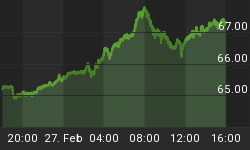Greening the European Union has suffered a setback.
The European Biodiesel Board is reporting that the European Union biodiesel industry production forecasts are noting a 2011 decrease in output, the first since data has been gathered, down from 2010 figures of 9.57 million tons.
The European Biodiesel Board reported that biodiesel generation in Europe in 2010 grew by 5.5 percent over 2009 production figures, while in 2009 the European Union's biodiesel industry grew by 17 percent. Recently the European Union's best year for biodiesel output was 2008, when the growth rate surged 35 percent over 2007 levels.
Germany and France are the European Union's leading biodiesel producing nations, followed by Spain and Italy.
According to the European Biodiesel Board, reasons for the decline include increased imports from Argentina and Indonesia as well as North America. The European Union currently has 254 biodiesel facilities, which analysts predict will only be able to fulfill 66 percent of the European Union's 2020 biofuel mandates.
Few European Union nations experienced growth in their biodiesel manufacturing capacity in 2011. Belgium, Greece, the Netherlands, Poland, Slovenia, and Spain reported slight increases while Bulgaria, Germany, Italy, Romania and Britain all reported slight reductions in their biodiesel output. The European Biodiesel Board reported that between 2009 and 2010 actual production levels in Belgium, Bulgaria, the Czech Republic, Denmark, Sweden, Finland, Germany, Hungary, Ireland, the Netherlands, Poland, Portugal, Romania, Slovenia, Spain and Britain even as output declined in Austria, Cyprus, Estonia, France, Greece, Italy, Latvia, Lithuania, Malta and Slovakia.
The European Biodiesel Board has no doubt about the reasons for the decline, citing European Union commitments to reducing carbon emissions from "Indirect Land Use Change,"(ILUC) the shifting to croplands over to biofuel manufacture, stating in a press release, "In the view of the European Biodiesel Board, it is essential that efforts to implement the Renewable Energy Directive and its 2020 objectives are not diverted by the current debate over biofuels (ILUC). "Given the lack of robustness of existing econometrical models, assessing the existence and magnitude of ILUC remains a daunting task."
Stripped of the technical verbiage, the European Union legislation mandates are pursuing contradictory goals. On 17 December 2008 the European Parliament approved the Renewable Energy Sources Directive (COM(2008)19) and amendments to the Fuel Quality Directive (Directive 2009/30), which included sustainability criteria for biofuels which were to consider ILUC issues. The Renewable Energy Directive established a 10 percent biofuel target for the European Union even as the Fuel Quality established the European Union's Low Carbon Fuel Standard, requiring a 6 percent reduction in greenhouse gas intensity of European Union transport fuels by 2020. The legislation did not immediately include a specific approach or size of the ILUC factor, which the European Biodiesel Board rightly points out is an impediment to the industry's growth until the legislative niceties exactly define ILUC considerations.
In the interim, European Union imports of biodiesel have increased, as in 2010 the European Union imported more than 1.9 million tons of biodiesel, of which roughly 61 percent came from Argentina, 26 percent from Indonesia with smaller quantities from Canada, Malaysia, India, Singapore and the rest of the world. Given European Union legislative vagueness and rising imports, the European Biodiesel Board supports a recent European Commission proposal to remove Argentina and Malaysia from the list of countries benefiting from the Generalized System of Preferences which, if implemented, would see biodiesel imports entering the European Union from the two nations subjected to a 6.5 percent import duty levy.
Far from being resolved, the European Union's ILUC legislative fuzziness and biodiesel issues are intensifying, with over 100 top scientists and economists with the prestigious American Union of Concerned Scientists weighing in on the issues, writing that because of "flawed" accounting conventions, "the European Union's target for renewable energy in transport may fail to deliver genuine carbon savings in the real world. It could end up as merely an exercise on paper that promotes widespread deforestation and higher food prices. All the studies of land use change indicate that the emissions related to biofuels expansion are significant and can be quite large."
Until the "fuzzy" math and science of the European Union's ILUC and biodiesel policies are resolved, it might be wisest in the interim for Brussels to accede to the European Biodiesel Board's recommendation simply to tax imports until the issues are resolved.
Solar power, anyone?
By. John C.K. Daly of http://oilprice.com















